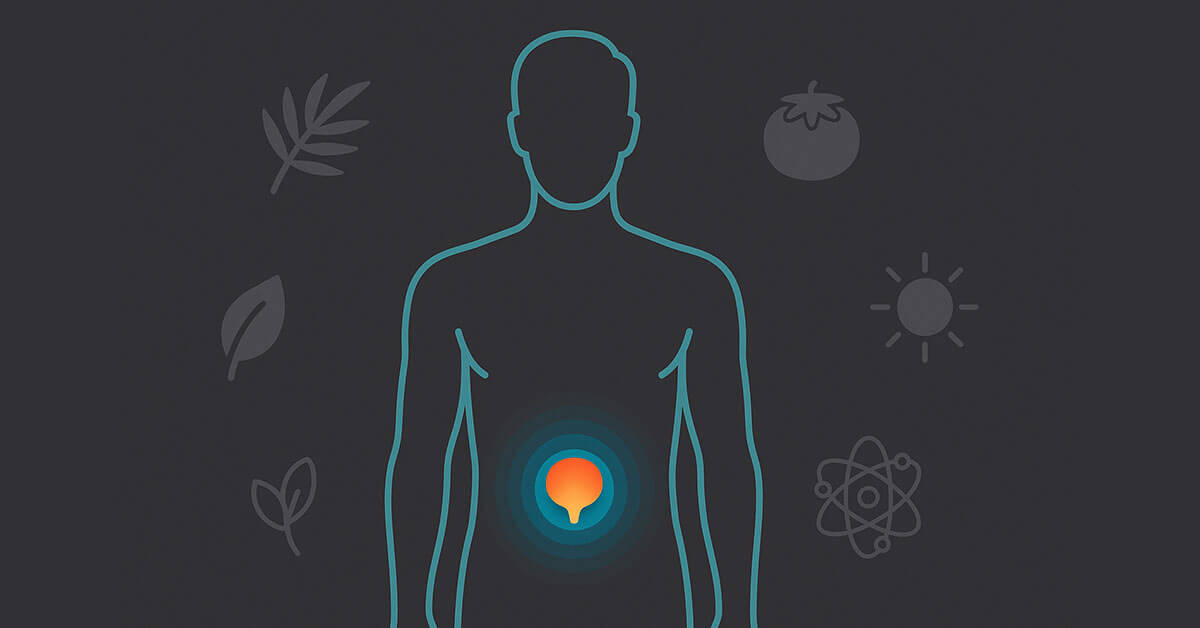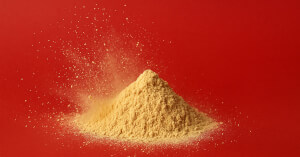
Prostate health is an important concern for men, especially as they get older. By the time men reach their 50s and 60s, many start to notice urinary symptoms linked to an enlarged prostate, also known as benign prostatic hyperplasia (BPH).
Frequent nighttime urination, weak urine flow, and the constant feeling of not fully emptying the bladder can affect quality of life. While medications and surgery are options in severe cases, many men turn to natural supplements as a first line of support.
But with so many products on the market, which ones are actually backed by research? The good news is that several natural compounds have been studied and show promise in supporting prostate health, reducing inflammation, and easing urinary symptoms. In this article, we’ll explore the top 12 supplements for prostate health, how they work, and what clinical studies say about them.
1. Saw Palmetto (Serenoa repens)
Saw palmetto is perhaps the most famous supplement for prostate health. Extracted from the berries of the saw palmetto palm, this herb has been studied for its ability to reduce symptoms of BPH.
It works by blocking the conversion of testosterone into dihydrotestosterone (DHT), a hormone that contributes to prostate enlargement.
Clinical studies show that saw palmetto can reduce nighttime urination, improve urine flow, and decrease the feeling of incomplete bladder emptying.
📊 Clinical Evidence: A 2012 Cochrane review analyzing 32 clinical trials with over 5,500 men found that saw palmetto extract reduced urinary symptoms in many cases, with good safety and tolerability.
✔️ Typical Dosage Range: 160–320 mg daily of standardized extract.
2. Beta-Sitosterol
Beta-sitosterol is a plant sterol found in fruits, vegetables, nuts, and seeds. Unlike saw palmetto, which targets hormones, beta-sitosterol works directly on urinary symptoms.
Studies show that it can significantly improve urine flow, reduce the volume of urine left in the bladder, and relieve overall discomfort associated with BPH. Many prostate health formulas include beta-sitosterol as a key ingredient.
📊 Clinical Evidence: A meta-analysis published in the British Journal of Urology reviewed 4 randomized controlled trials and found that beta-sitosterol improved urinary flow and reduced residual urine volume in men with BPH.
✔️ Typical Dosage Range: 60–130 mg daily.
3. Pygeum africanum (African Plum Bark)
Pygeum is a traditional herbal remedy derived from the bark of the African plum tree.
It’s used to reduce inflammation in the urinary tract and improve overall bladder function.
Research suggests pygeum may reduce the frequency of nighttime urination and improve the ability to fully empty the bladder. Many men find it especially helpful when combined with saw palmetto.
📊 Clinical Evidence: A review of 18 clinical trials involving over 1,500 men, published in the BMJ, found that pygeum significantly improved urinary symptoms and flow while reducing nighttime urination.
✔️ Typical Dosage Range: 50–100 mg daily of standardized extract.
4. Pumpkin Seed Oil
Pumpkin seeds are rich in zinc, phytosterols, and antioxidants. Pumpkin seed oil has been shown to support urinary health and reduce symptoms of BPH.
One study found that men taking pumpkin seed oil experienced fewer bathroom trips at night and improved overall comfort. This supplement is often considered gentle, safe, and easy to incorporate into a daily routine.
📊 Clinical Evidence: A randomized double-blind trial published in Nutrition Research & Practice (2009) showed that men taking pumpkin seed oil for 12 weeks had improved International Prostate Symptom Scores (IPSS) and quality of life.
✔️ Typical Dosage Range: 1,000–2,000 mg daily.
5. Zinc
Zinc is an essential mineral with high concentrations in the prostate gland.
Research shows that low zinc levels are associated with a higher risk of prostate problems.
Zinc supports immune function, regulates hormones, and helps maintain healthy prostate tissue. While zinc can be obtained from food sources like meat, shellfish, and seeds, supplements may be beneficial for men who are deficient.
📊 Clinical Evidence: Epidemiological studies consistently show that men with lower zinc levels have a higher risk of developing prostate disorders, while supplementation helps restore healthy prostate tissue balance.
✔️ Typical Dosage Range: 10–30 mg daily.
6. Lycopene
Lycopene is a powerful antioxidant found in tomatoes, watermelon, and pink grapefruit. It protects prostate cells from oxidative stress and may slow prostate enlargement.
Some studies also suggest that lycopene could reduce prostate-specific antigen (PSA) levels, an indicator of prostate health. Lycopene works best when consumed with healthy fats, as it is fat-soluble.
📊 Clinical Evidence: A study published in the Journal of Nutrition (2000) found that lycopene supplementation slowed prostate enlargement and reduced PSA levels in men with benign prostate conditions.
✔️ Typical Dosage Range: 10–30 mg daily.
7. Green Tea Extract (EGCG)
Green tea is rich in catechins, especially epigallocatechin gallate (EGCG), which has strong antioxidant and anti-inflammatory effects.
Green tea extract has been studied for its protective role in prostate health. It may reduce inflammation, support healthy cell growth, and improve metabolic health, which indirectly benefits the prostate.
📊 Clinical Evidence: A 2006 randomized clinical trial found that men at high risk for prostate issues who took green tea catechins daily for one year had a significantly lower incidence of prostate-related diagnoses compared to placebo.
✔️ Typical Dosage Range: 300–800 mg daily of standardized extract.
8. Stinging Nettle Root
Stinging nettle root has been used in traditional medicine for urinary and prostate issues.
Research indicates that it can reduce urinary frequency, improve urine flow, and decrease the need for nighttime bathroom visits. It’s often paired with saw palmetto in prostate support supplements for a stronger effect.
📊 Clinical Evidence: Several clinical trials have shown that nettle root, especially when combined with saw palmetto, reduces urinary tract symptoms and improves flow in men with BPH.
✔️ Typical Dosage Range: 300–600 mg daily.
9. Vitamin D
Vitamin D plays a role in hormone regulation, immune balance, and cellular health. Low vitamin D levels are associated with increased inflammation and a higher risk of prostate problems.
Since many men are deficient due to limited sun exposure, supplementing vitamin D can support both overall health and prostate function.
📊 Clinical Evidence: Observational studies suggest that men with sufficient vitamin D levels have better prostate health markers and lower levels of chronic inflammation than those deficient in vitamin D.
✔️ Typical Dosage Range: 1,000–2,000 IU daily, depending on blood levels.
10. Selenium
Selenium is a trace mineral with antioxidant properties. It helps protect cells from oxidative stress and supports immune health.
Some studies suggest selenium may work best when combined with vitamin E and lycopene. However, it’s important not to over-supplement, as excessive selenium can be harmful.
📊 Clinical Evidence: The SELECT trial, one of the largest studies on selenium and prostate health, found mixed results, highlighting the importance of moderate intake rather than high-dose supplementation.
✔️ Typical Dosage Range: 100–200 mcg daily.
11. Pomegranate Extract
Pomegranate is known for its high antioxidant content, particularly punicalagins and ellagic acid. Pomegranate extract helps reduce oxidative stress and may support healthy cell function in the prostate.
Some clinical studies suggest pomegranate can slow PSA doubling time, which is often used as a marker of prostate health.
📊 Clinical Evidence: A study published in Clinical Cancer Research (2006) showed that pomegranate juice slowed PSA doubling time in men after prostate therapy, suggesting antioxidant protection for prostate cells.
✔️ Typical Dosage Range: 500–1,000 mg daily of standardized extract.
12. Curcumin (from Turmeric)
Curcumin, the active compound in turmeric, is a potent anti-inflammatory. Chronic inflammation is linked to prostate issues, and curcumin may help calm this process.
In addition to prostate health, curcumin supports overall immune balance and reduces systemic inflammation. To improve absorption, it’s often combined with black pepper extract (piperine).
📊 Clinical Evidence: Early pilot studies suggest that curcumin supplementation may reduce prostate inflammation and support healthy cell signaling, though larger trials are still needed.
✔️ Typical Dosage Range: 500–1,000 mg daily with black pepper extract for better absorption.
Other Lifestyle Factors for Prostate Health
While supplements can make a big difference, lifestyle choices remain essential. A diet rich in vegetables, fruits, and healthy fats supports prostate function.
Regular exercise improves circulation and hormone balance. Maintaining a healthy weight lowers pressure on the urinary system. Finally, reducing alcohol, caffeine, and processed foods can help minimize symptoms.
Conclusion
Prostate health doesn’t have to decline with age. Natural supplements like saw palmetto, beta-sitosterol, pygeum, zinc, lycopene, and pumpkin seed oil are among the most effective for supporting urinary comfort and reducing inflammation.
Antioxidants such as green tea extract, pomegranate, and curcumin add extra protection. When combined with vitamin D, selenium, and a balanced lifestyle, these supplements form a powerful strategy to maintain prostate health and quality of life.
Always remember to consult a healthcare professional before starting a new regimen, especially if you’re on medication.
FAQ about Prostate Health Supplements
Do prostate supplements really work?
Yes, certain supplements like saw palmetto, beta-sitosterol, and pygeum have been shown in studies to improve urinary symptoms and support prostate health.
How long does it take to see results from supplements?
It varies, but most men notice improvements in urinary flow and frequency within 4–12 weeks of regular use.
Can I take multiple prostate supplements at once?
Some supplements are combined in formulas (e.g., saw palmetto + nettle + zinc). However, always check with a healthcare provider before stacking too many.
Are prostate supplements safe for long-term use?
Most are considered safe when taken at proper dosages, but certain ones like zinc or selenium can be harmful in excess. Moderation and medical advice are key.
This article was originally published on Stackbb, your trusted source for science-based supplement guides.








